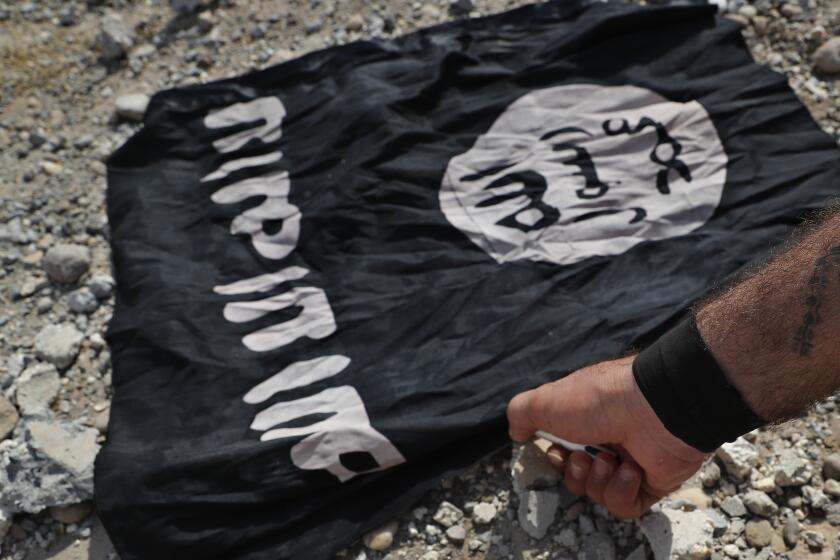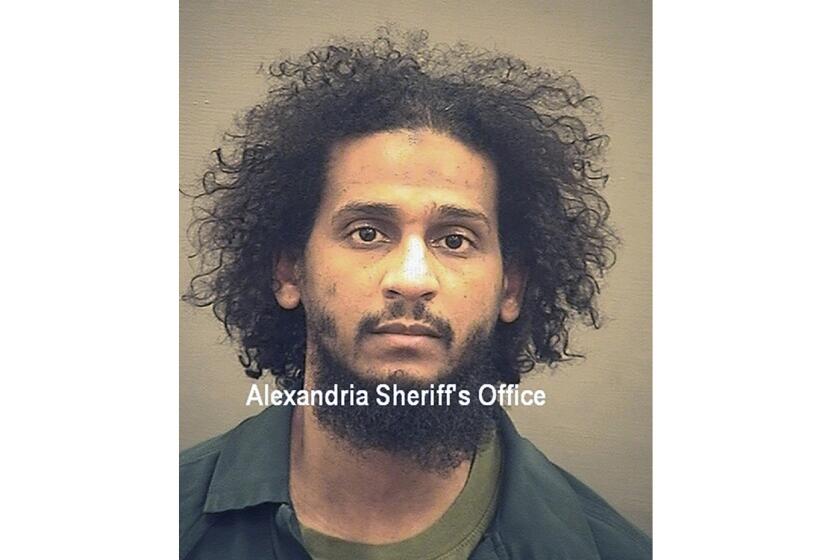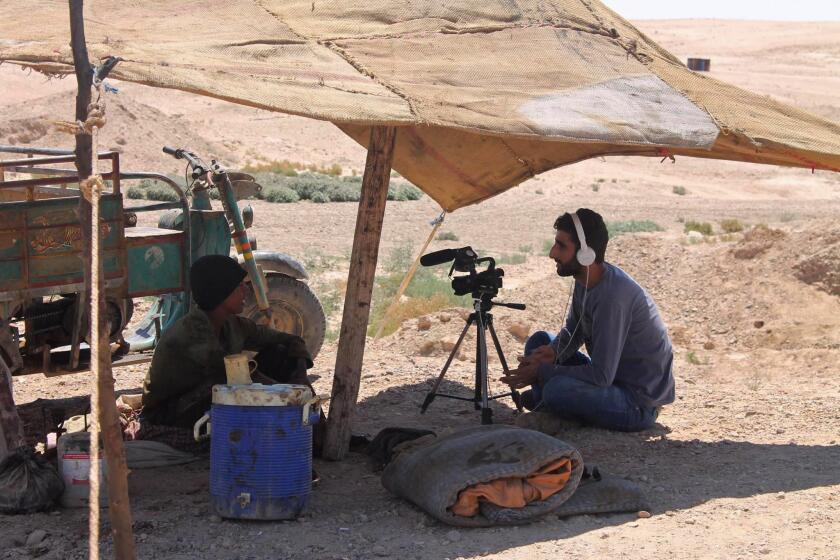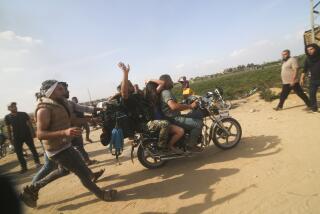U.N. says Islamic State committed war crimes at Iraqi prison where it slaughtered 1,000
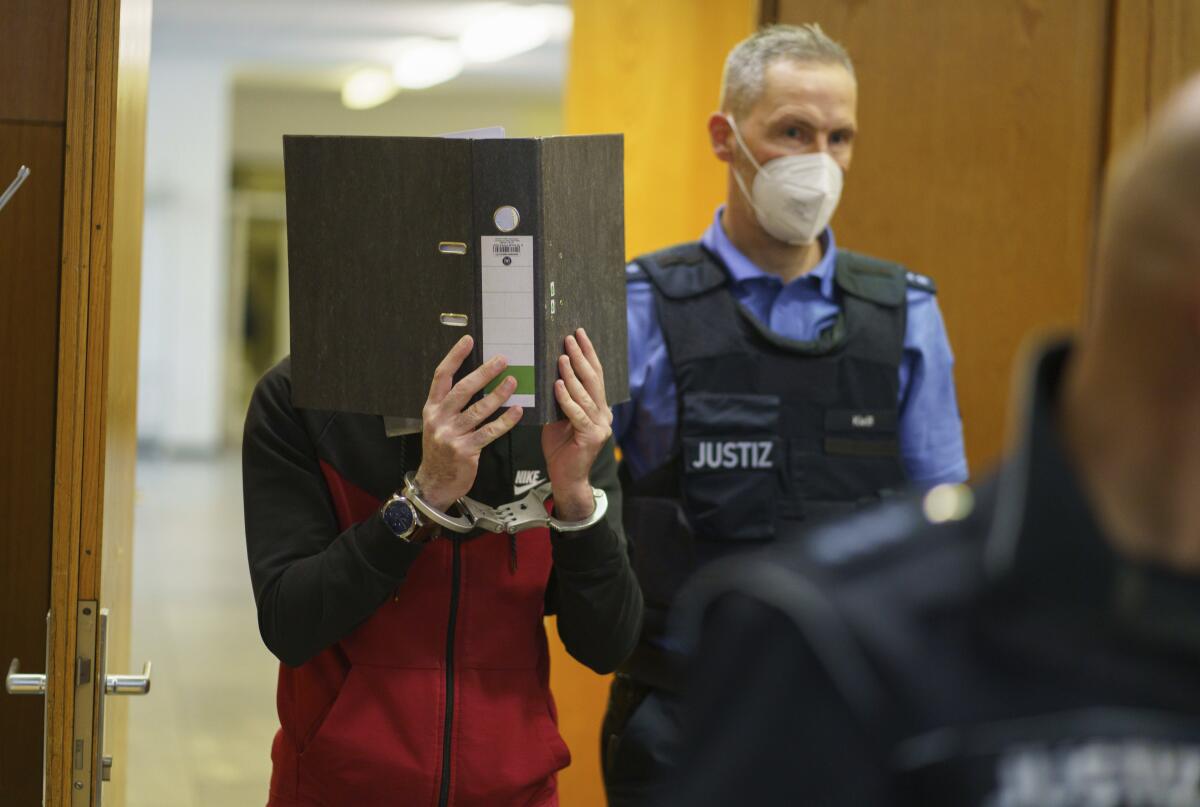
- Share via
UNITED NATIONS — The head of a United Nations team investigating atrocities in Iraq said that Islamic State extremists committed crimes against humanity and war crimes at a prison in Mosul in June 2014, where at least 1,000 predominantly Shiite Muslim prisoners were systematically killed.
Christian Ritscher told the U.N. Security Council on Thursday that evidence collected from mass graves containing the remains of victims of executions carried out at Badush Central Prison and from survivors shows detailed preparations of the attack by senior Islamic State members, followed by an assault on the morning of June 10, 2014.
“Prisoners captured were led to sites close to the prison, separated based on their religion and humiliated,” Ritscher said. “At least 1,000 predominantly Shiite prisoners were then systematically killed.”
Ritscher said the investigators’ analysis of digital, documentary, survivors’ and forensic evidence, including Islamic State documents, has identified a number of members from the extremist group, also known as IS or ISIL, who were responsible for the crimes.
As a result of the investigations, he said the U.N. Investigative Team to Promote Accountability for Crimes committed by the Islamic State group in Iraq has concluded that IS committed “crimes against humanity of murder, extermination, torture, enforced disappearances, persecution and other inhumane acts” at Badush prison, as well as the “war crimes of willful killing, torture, inhumane treatment, and outrage upon personal dignity.”
Islamic State fighters seized Iraqi cities and declared a self-styled caliphate in a large swath of territory in Syria and Iraq in 2014. The group was formally declared defeated in Iraq in 2017 following a bloody three-year battle that left tens of thousands dead and cities in ruins, but its sleeper cells continue to launch attacks in different parts of Iraq.
The spokesman for the Islamic State group says its leader Abu Hassan Hashimi Qurayshi was killed in battle recently,
In May, Ritscher’s predecessor, Karim Khan, told the council that investigators had found “clear and compelling evidence” that Islamic State extremists committed genocide against the Yazidi minority in 2014. He also said the militant group successfully developed chemical weapons and used mustard gas.
Ritscher hailed the “landmark moment” two days ago that saw the first-ever conviction of an IS member for the crime of genocide at the regional court in Frankfurt, Germany. The 29-year-old Iraqi was also convicted of crimes against humanity, war crimes and bodily harm resulting in death over the death of a 5-year-old Yazidi girl he had purchased as a slave with her mother and then chained up in the hot sun to die.
“We now have the chance, collectively, to make such prosecutions the norm, not a celebrated exception,” Ritscher said. “In cooperation with Iraqi authorities and those of the Kurdistan region, together with survivors and with the support of this council, we are building the evidence that can deliver meaningful justice for all those who suffered from ISIL crimes in Iraq.”
Ritscher said evidence collected relating to the Badush prison attacks underlined the detailed planning by IS in carrying out their atrocities.
A British man nicknamed one of the ‘Beatles’ by his captives because of his English accent has been sentenced to life in prison for his role in the deaths of four U.S. hostages captured by Islamic State.
The extremist group’s approach “is seen even more clearly in two other key lines of investigation that have accelerated in the last six months: the development and use of chemical and biological weapons ... and the financial mechanisms through which it sustained its campaign of violence,” he said.
The team’s evidence also shows that IS “clearly identified and then seized chemical production factories and other sources of precursor material, while also overtaking the University of Mosul campus as a hub for research and development,” Ritscher said.
The extremist group’s program became more sophisticated, and investigators have identified more than 3.000 victims of IS chemical weapons attacks as well as of its use of rocket artillery projectiles containing a mustard sulfur agent, he said.
Ritscher also stressed the critical importance of bringing the Islamic State’s financiers and those who profit from the group’s crimes to justice.
Thousands of people believed seized by Islamic State are still missing, and calling their captors to account remains elusive.
Ritscher said investigators have uncovered the inner workings of the IS central treasury and a network of senior leaders who also acted “as trusted financiers, diverting wealth that ISIL gained through pillage, theft of property from targeted communities and the imposition of a systematic and exploitative taxation system.”
He said the investigative team recently shared information with the Iraqi judiciary on the use of money service businesses by the group “as key facilitators of their financing,” and it looks forward to expanding this kind of cooperation.
More to Read
Sign up for Essential California
The most important California stories and recommendations in your inbox every morning.
You may occasionally receive promotional content from the Los Angeles Times.
